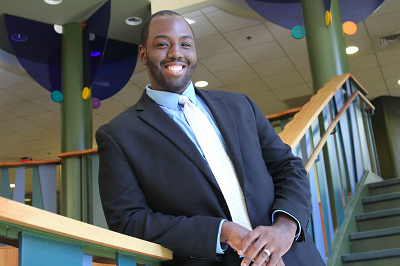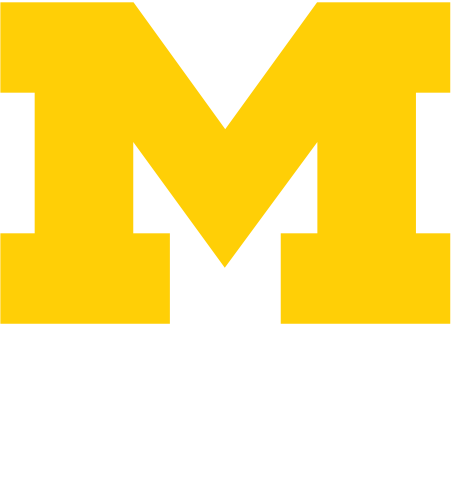I AM FPHLP 2016: Raheem Louis
 Raheem Louis was part of the 2016 FPHLP cohort. He is a junior at the University of California, Los Angeles, majoring in the Physiological Sciences with a minor in Public Health. This past
summer Raheem's field placement was with the Arab American and Chaldean Council's (ACC) Women, Infants, and Children (WIC) program in Detroit. Raheem assembled call
logs for the WIC staff that highlighted several OBGYN clinics in a 10- to 15-mile
radius, accepting Medicaid. He explains, "The objective of this project was to increase
the referral rates to WIC and ensure that low-income mothers had access to proper
OBGYN care." Raheem also worked with the Penrose Village – a community of low-income
residents, many of whom were on WIC – at least once a week to set up play dates for
the youth that empowered them to get out and exercise while learning about the importance
of team work and healthy eating.
Raheem Louis was part of the 2016 FPHLP cohort. He is a junior at the University of California, Los Angeles, majoring in the Physiological Sciences with a minor in Public Health. This past
summer Raheem's field placement was with the Arab American and Chaldean Council's (ACC) Women, Infants, and Children (WIC) program in Detroit. Raheem assembled call
logs for the WIC staff that highlighted several OBGYN clinics in a 10- to 15-mile
radius, accepting Medicaid. He explains, "The objective of this project was to increase
the referral rates to WIC and ensure that low-income mothers had access to proper
OBGYN care." Raheem also worked with the Penrose Village – a community of low-income
residents, many of whom were on WIC – at least once a week to set up play dates for
the youth that empowered them to get out and exercise while learning about the importance
of team work and healthy eating.
The greatest challenge Raheem faced as a participant was understanding that not everyone has the same beliefs and opinions. He says, "Being a vegan activist, it was challenging to adjust to the dominant culture of meat-eating habits and trying to explain to those who participate in it, the core of what veganism stands for and what it represents." Raheem learned, though it is sometimes difficult, it is better to have a discussion rather than always trying to win an argument based on your beliefs. A willingness to listen does not invalidate your own thoughts and feelings. Raheem believes that confronting this challenge while also forming a supportive, core group of friends, has helped him to grow professionally.
Since completing the program, Raheem has been part of the Barber Shop Project coordinated by Cedar-Sinai Hospital in Beverly Hills, California. This health program allows barbers to offer blood pressure checks to their African American clients, as African Americans are disproportionately affected by hypertension and are also less likely to be aware of their status. Raheem explains, "Clients identified as having high blood pressure are encouraged to participate in a program where they receive care from both a physician and a pharmacist who monitor their blood pressure to determine if treatment is effective." Raheem eventually hopes to attend medical school to earn a MD/JD joint degree and possibly a Master of Public Health. Through these programs and training, he plans to use the law as a means to benefit the health humans, animals, and the world.
Reflecting on what led him to participate in FPHLP, Raheem says, "I knew public health involved controversial topics – from global warming to the disproportionate health outcomes of certain communities; however, I wanted to get a firmer grasp on public health, so I could utilize its concepts in the practice of medicine. Rather than focusing on simply prescribing medication, I believe that the food we put into our bodies is a fundamental component and often essential part of healing and maintaining the integrity of our bodies...having an opportunity to participate in FPHLP allowed me to understand the systemic factors contributing to disproportionate outcomes of healthy-eating options in certain communities." Raheem encourages anyone interested in FPHLP to apply, and he recommends that applicants be honest about themselves and their interests. He also suggests that future participants think about what they truly stand for, so they can take something away from the program that will connect with their motives and ambitions.


